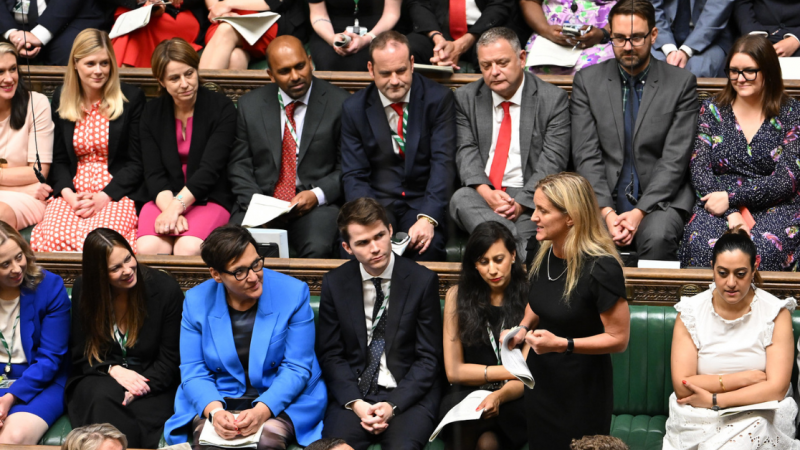
At any point in my life so far if you had asked me if I support assisted dying, I’d have said yes. I saw it as matter of personal choice. And yet I find myself preparing to vote against this Bill. During the debates there have been moments we’ve seen Parliament at its best – words of respect, nuance and humanity. But in the end, as legislators we must vote on the Bill as written. And I am not convinced the safeguards are strong enough.
Assisted dying has captured public attention like nothing else. I’ve had a lot of correspondence on both sides, more in fact than almost any other subject. I have spent more time thinking about and researching this issue than anything else since being elected. I’m not guided by faith – frankly if I were it might make the whole thing easier. However, I do try and approach decisions mindful of the responsibility to balance the rights of some with the safety of others.
Conscious that representing means listening, I held two panel discussion meetings in my constituency bringing together experts, ethicists and the public. I honestly can’t think of any other subject where over 100 people would attend a meeting to discuss politics on a wet Thursday night. On a national level, Kim Leadbeater has approached the difficult task of guiding the debate with empathy. However, I think so early in a new parliament the timing is not ideal.
I personally can imagine circumstances where I would want to have the choice to end my own life. However, not everyone approaches medical decision-making from the same place and my university education and able body inevitably shape my outlook. At the panel discussion events we talked a lot about the factors which might influence our ability to make an informed choice to end our lives. As much as we might feel perfectly able to do it, underpinning that decision are a complex web of factors such as our level of education, wealth, health status, and previous experiences with medical professionals. There are also emotions – perhaps the most powerful factor affecting our thinking and the one whose impact we are least able to judge.
READ MORE: Assisted dying vote tracker: How will Labour MPs vote at third reading?
Subscribe here to our daily newsletter roundup of all things Labour – and follow us on Bluesky, WhatsApp, Threads, X or Facebook.
‘Any bill on assisted dying must have specific measures to ensure safety from coercion’
High quality universally available palliative and social care is sadly not a reality in this country, and this could mean people in poorer areas being more likely to opt for an assisted death. People who are vulnerable for many reasons can also be subject to pressures which can’t easily be seen. As a member of Health Select Committee, I have heard groups such as Black Mothers Matter talk about patients having a lack of confidence pushing back on medical professionals’ suggestions. For that reason, I’m disappointed that measures to stop doctors suggesting an assisted death were opposed by the Bill’s supporters.
In reaching a conclusion I have read books and reports, been to meetings organised by both sides, and drawn on my own experiences. I took time to talk to those with disabilities who had concerns about the bill, and I believe the risk of coercion is very real. Coercion can be so subtle. We know that abuse in relationships happens more at the end of life, and we know that families under strain and financial pressure don’t always act in their loved one’s best interests. In my time working as a council cabinet member for social care I saw some truly distressing cases over family budgets. Any bill on assisted dying must be tightly drawn and have specific measures to ensure safety from coercion. I want more to be done to protect people at the end of their lives.
As parliamentarians the question is never easy, nor should it be. A vote one way will inevitably cause tragedy the other way. If the Bill falls there will be some people who die a painful death unnecessarily and if it passes, there will be some who feel coerced into ending their lives earlier. It’s not easy, which is why we have taken this so seriously.
- SHARE: If you have anything to share that we should be looking into or publishing about this story – or any other topic involving Labour– contact us (strictly anonymously if you wish) at [email protected].
- SUBSCRIBE: Sign up to LabourList’s morning email here for the best briefing on everything Labour, every weekday morning.
- DONATE: If you value our work, please chip in a few pounds a week and become one of our supporters, helping sustain and expand our coverage.
- PARTNER: If you or your organisation might be interested in partnering with us on sponsored events or projects, email [email protected].
- ADVERTISE: If your organisation would like to advertise or run sponsored pieces on LabourList‘s daily newsletter or website, contact our exclusive ad partners Total Politics at [email protected].




More from LabourList
Almost half of Labour members oppose plans to restrict jury trials, poll finds
‘How Labour can finally fix Britain’s 5G problem’
‘The University of the Air – celebrating 60 years of Harold Wilson and Jennie Lee’s vision’